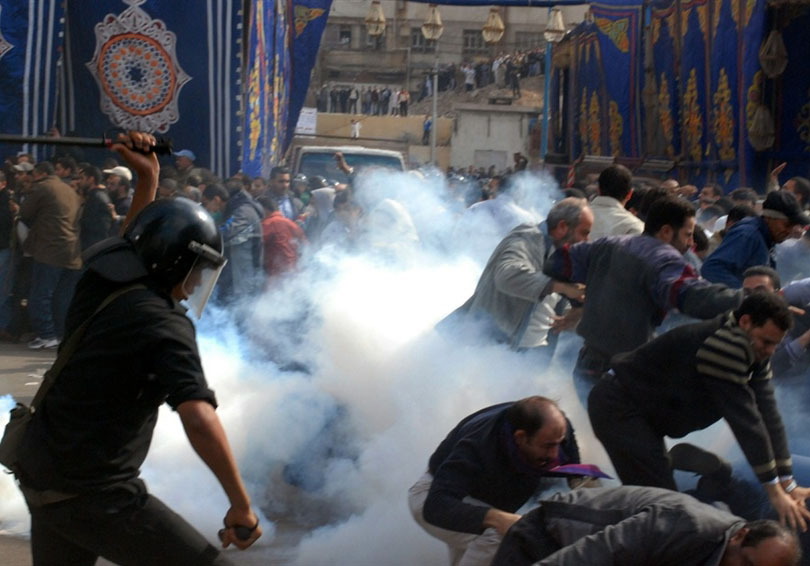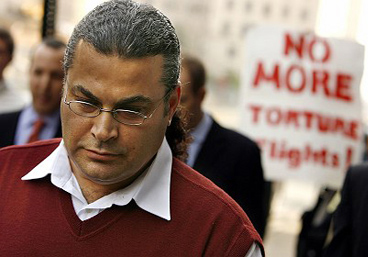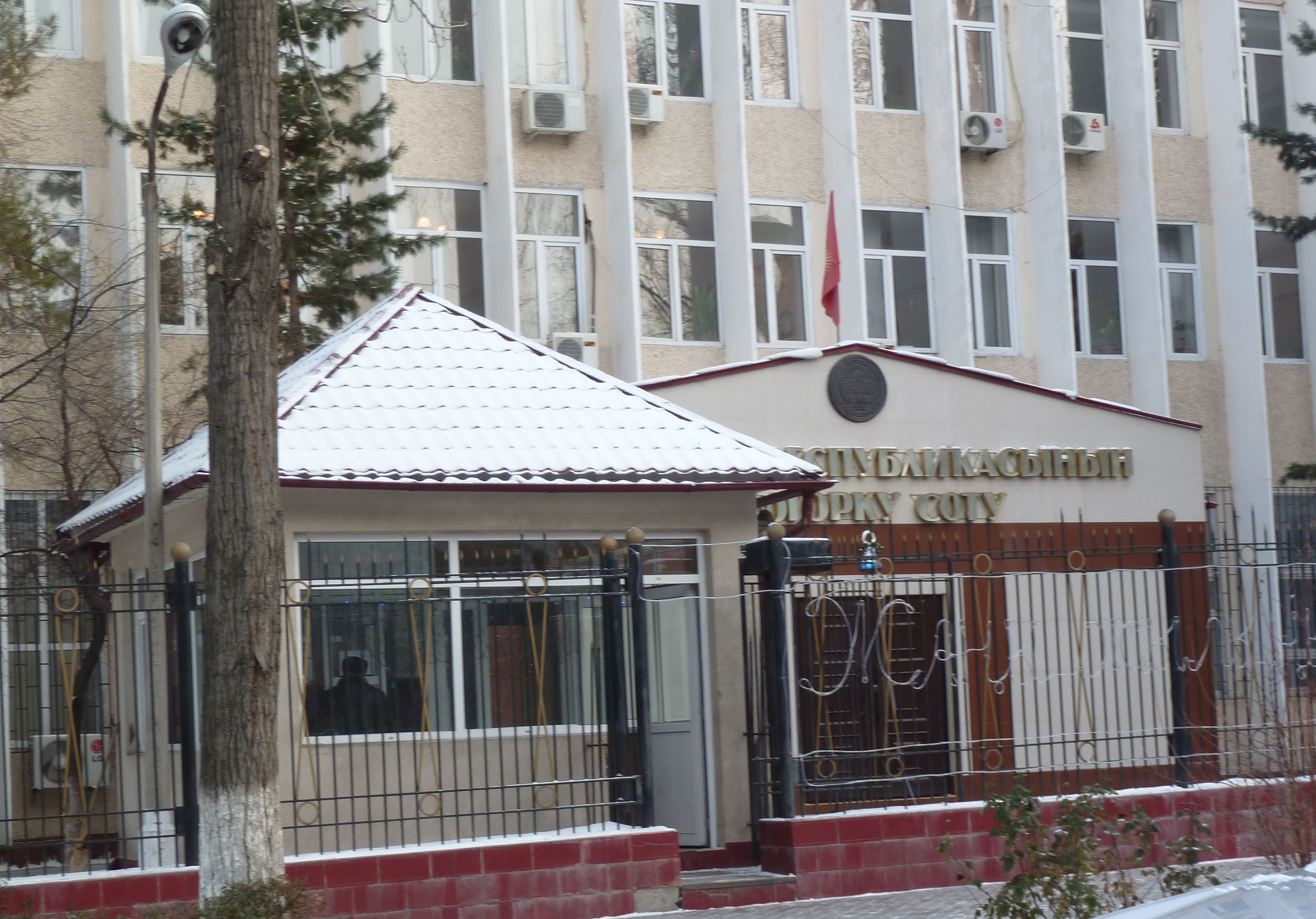
Sep 25, 2013 | News
The ICJ continues to be disappointed over the continued arbitrary detention and refusal of bail of Secretary of human rights organization, Odhikar, and Supreme Court Advocate Adilur Rahman Khan.
The ICJ urged the Bangladeshi authorities to drop their opposition to Adilur Rahman Khan’s bail application.
On 25 September 2013, a cyber crimes tribunal in Dhaka refused Adilur Rahman Khan’s bail application. He had earlier been denied bail on 11 August 2013 and 9 September 2013.
“Adilur Rahman Khan is being arbitrarily detained for his lawful exercise of the right to freedom of expression and his legitimate work as a human rights defender,” said Ben Schonveld, ICJ’s South Asia Director. “What we are seeing is a Government crackdown on voices of dissent.”
Under international law, all persons are presumed innocent until proven guilty.
Under Article 9 of the International Covenant on Civil and Political Rights (ICCPR), to which Bangladesh is a party, there is a presumption of pre-trial release.
A person can only be denied pre-trial release where it is reasonable and necessary in all of the circumstances to prevent absconding, interference with evidence or recidivism.
“The Government cannot show that Adilur Rahman Khan poses a flight risk,” Schonveld added. “In fact, he faces a serious threat of torture and ill-treatment during detention, as documented by Odhikar and other human rights organizations.”
The ICJ reiterates its call on Bangladesh to immediately and unconditionally drop all charges against Adilur Rahman Khan and Nasiruddin Elan, ensure Adilur Rahman Khan is treated in accordance with international law in custody, and cease its harassment of Odhikar.
Contact
Ben Schonveld, ICJ South Asia Director (Kathmandu), t: +977 14432651; email: ben.schonveld(a)icj.org

Sep 11, 2013 | News
The ICJ expressed its disappointment over the continued arbitrary detention and refusal of bail of Secretary of human rights organization, Odhikar, and Supreme Court Advocate Adilur Rahman Khan.
The ICJ urged the Bangladeshi authorities to drop their opposition to Adilur Rahman Khan’s bail application.
On 9 September 2013, a Magistrates Court in Dhaka refused Adilur Rahman Khan’s bail application for the second time. He had earlier been denied bail on 11 August 2013.
“Adilur Rahman Khan is being arbitrarily detained for his lawful exercise of the right to freedom of expression and his legitimate work as a human rights defender,” said Ben Schonveld, ICJ’s South Asia Director. “What we are seeing is a Government crackdown on voices of dissent.”
Under international law, all persons are presumed innocent until proven guilty.
Under Article 9 of the International Covenant on Civil and Political Rights (ICCPR), to which Bangladesh is a party, there is a presumption of pre-trial release.
A person can only be denied pre-trial release where it is reasonable and necessary in all of the circumstances to prevent absconding, interference with evidence or recidivism.
“The Government cannot show that Adilur Rahman Khan poses a flight risk,” Schonveld added. “In fact, he faces a serious threat of torture and ill-treatment during detention, as documented by Odhikar and other human rights organizations.”
The ICJ reiterates its call on Bangladesh to immediately and unconditionally drop all charges against Adilur Rahman Khan and Nasiruddin Elan, ensure Adilur Rahman Khan is treated in accordance with international law in custody, and cease its harassment of Odhikar.
Contact
Ben Schonveld, ICJ South Asia Director (Kathmandu), t: +977 14432651; email: ben.schonveld(a)icj.org
Additional information
Adilur Rahman Khan was arrested his home on 10 August 2013 without an arrest warrant.
On August 11, a Magistrate’s Court refused his bail application and remanded him for five days of custodial interrogation.
On August 12, the High Court Division of the Supreme Court stayed the remand order and directed that Adilur Rahman be sent back to jail, where he could be interrogated ‘at the gate of the jail.’
On 4 September 2013, the Detective Branch of Police filed a charge sheet against Adilur Rahman Khan and Odhikar’s Director, Nasiruddin Elan, under Section 57 of the International Communication and Technology Act 2006.
They were accused of distorting information, presenting false evidence and manipulating photographs regarding a police operation on a Hefazat-e Islam rally in May this year.
Odhikar had reported that 61 people were killed in the police crackdown on the rally. The government contested the number of casualties.
Adilur Rahman Khan and Nasiruddin Elan will be formally charged on 12 September 2013.
LATEST UPDATE: Letter to Prime Minister Sheikh Hasina Wazed on the Continued Detention of Adilur Rahman Khan
Bangladesh- Letter Adilur Rahman Khan-Advocacy-Open letter-2013 (full text in pdf)

Jul 29, 2013 | News
The ICJ today called on the Egyptian authorities to put an end to its use of unlawful and lethal force as it pursues an excessive and violent crackdown on protesters.
The ICJ also called on the authorities to promptly, impartially and fully investigate the allegedly unlawful killings of more than 80 people who were reportedly fired on by security forces in a rally in Cairo in support of ousted President Mohamed Morsi on 27 July.
Large-scale rallies were held when the head of the armed forces, General Abdel Fattah El Sisi, called on citizens to grant the military a mandate to fight “terrorism and violence”.
The ICJ is also concerned at reports indicating that the government may be poised to grant arrest powers to the Egyptian Armed Forces.
“The Egyptian authorities must promptly, fully, and impartially investigate the actions of the security of forces, involving alleged unlawful killings and ill-treatment of protesters with a view to holding accountable those responsible,” said Wilder Tayler, ICJ Secretary General. “The authorities must also ensure that, in accordance with international law and standards, security officers exercise force only in a proportionate manner and may use lethal force only when strictly unavoidable to protect lives.”
Since the unlawful seizure of power by the Army and the ouster of President Morsi, more than 130 persons said to be supporters of the former President have reportedly been killed as a result of the unlawful and disproportionate use of force by security forces, including firing with live ammunition.
The ICJ is concerned that the ongoing attacks on protesters, and the impunity that continues to prevail over them, will further contribute to the deterioration of the rule of law and the human rights situation in Egypt.
To prevent such deterioration, the Egyptian Army must carry out its security functions so as to protect the enjoyment and legitimate exercise of human rights by all. It must also ensure a quick and steady transition of power to a legally constituted civilian authority.
Contact:
Said Benarbia, ICJ Senior Legal Adviser of the Middle East and North Africa Programme, tel: 41 22 979 38 17, e-mail: said.benarbia(a)icj.org
Photo by Samaa TV

Dec 13, 2012 | News
 Today’s ruling on the CIA’s detention and rendition of Khaled El-Masri is a historic moment because for the first time it holds a European state accountable for its involvement in the secret US-led programmes.
Today’s ruling on the CIA’s detention and rendition of Khaled El-Masri is a historic moment because for the first time it holds a European state accountable for its involvement in the secret US-led programmes.
It is also a milestone in the fight against impunity, Amnesty International and the International Commission of Jurists (ICJ) said.
The European Court of Human Rights held unanimously that the former Yugoslav Republic of Macedonia (Macedonia) was responsible for the German national Khaled El-Masri’s unlawful detention, enforced disappearance, torture and other ill-treatment, and for his transfer out of Macedonia to locations where he suffered further serious violations of his human rights.
Further, that Macedonia did not satisfy its obligation to carry out an effective investigation.
“This judgment confirms the role Macedonia played in the Central Intelligence Agency (CIA) rendition and secret detention programmes, and is an important step towards accountability for European complicity in rendition and torture,” said Julia Hall, Amnesty International’s expert on counter-terrorism and human rights.
“Macedonia is not alone. Many other European governments colluded with the USA to abduct, transfer, ‘disappear’ and torture people in the course of rendition operations. This judgment represents progress, but much more needs to be done to ensure accountability across Europe.”
“This ruling is historic. It recognises that the CIA rendition and secret detention system involved torture and enforced disappearances. It emphasises that both the victims and the public have the right to know the truth about these serious violations. It affirms without doubt that Europe cannot be an area of impunity but it must be a place of redress and accountability where international human rights law obligations are not bypassed but fulfilled,” said Wilder Tayler, Secretary General of the ICJ.
“Other European governments – such as Poland, Lithuania, and Romania, against which cases are also pending with the Court – should note today’s European Court judgment and take measures to ensure that the truth is told, thorough, effective, independent and impartial investigations are carried out and those responsible are held accountable.”
The Court’s ruling also serves to highlight the absence of accountability and remedy in the USA, noting that the claim filed against the CIA by Khaled El-Masri was dismissed by the US courts after the US administration invoked the “state secrets privilege”.
On 31 December 2003, the Macedonian authorities arrested El-Masri, who is of Lebanese descent, after he entered Macedonia from Serbia.
They held him incommunicado, subjecting him to enforced disappearance, repeated interrogations and to ill-treatment, until 23 January 2004 when they handed him over to Central Intelligence Agency (CIA) agents.
As part of the covert, US-led rendition and secret detention programme, the CIA transferred El-Masri to a secret detention facility in Afghanistan.
There he was held unlawfully in secret, not charged with any crime and his detention was not subject to judicial review. He did not have access to a lawyer. His whereabouts were not acknowledged and he was held incommunicado.
As a result he was subjected to enforced disappearance for over four months. While in Afghanistan, he was subjected to torture and other ill-treatment.
On 28 May 2004, El-Masri was put on a plane and flown to Albania where he was released.
Contact:
Róisín Pillay, Director, ICJ Europe Programme, t +41 22 979 38 30; e-mail: roisin.pillay(at)icj.org
For the ICJ/AI third party intervention, click here
Europe-Joint public statement El Masri-2012

Sep 19, 2012 | News, Publications, Reports, Trial observation reports
 A new report by the ICJ says there have been multiple violations of human rights in the arrest and trial of Azimzhan Askarov, a prominent Kyrgyz human rights defender.
A new report by the ICJ says there have been multiple violations of human rights in the arrest and trial of Azimzhan Askarov, a prominent Kyrgyz human rights defender.












